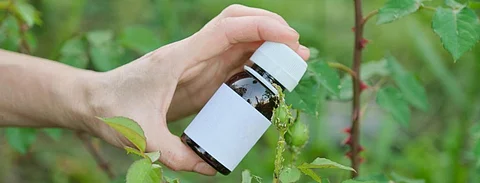

Doctors in Odisha’s Burla district, who saw herbicide paraquat kill around 170 people in the last two years, demand that the government ban it. They went on a two-day hunger strike, which ended on September 16, 2019, and may again resort to protests to have the government act.
“As many as 177 patients were affected by pesticide poisoning in the last two years. We lost track of three of them and of the 174, only three could survive. If this is not lethal, then what is?” said Shankar Ramchandani, a resident doctor at Veer Surendra Sai Institute of Medical Sciences and Research (VIMSAR), Burla.
“We are waiting for the government to act. If it does not, we will soon decide on our next mode of protest,” added Ramchandani, who was on strike with five more doctors.
There is no antidote to this herbicide, the consumers of which complain of kidney, liver and lung problems, said the doctor. “They may recover from kidney problems, but die of lung- and liver-related ailments. Some also witness kidney failure,” he said.
This is not the first time that doctors at VIMSAR have raised this concern. They wrote to the state’s health secretary in December 2018.
“We, the senior residents at VIMSAR, have seen almost all (99 per cent) patients of paraquat poisoning (incidental or suicide ingestion) die. According to medical literature too, it is a highly lethal herbicide. So we request you to take necessary steps to ban it,” read the letter.
The next letter went from the hospital superintendent. Later, the doctors submitted a memorandum to the state health minister last month, but all in vain.
Paraquat has been banned in 32 countries including Switzerland, where herbicide producing company Sygenta is based.
Paraquat also figures on the list of 99 pesticides and herbicides activist Kavitha Kuruganti is requesting the Supreme Court to ban in an ongoing case.
So far in India, only Kerala has banned the herbicide.
Pesticide Action Network (PAN), a civil society group, came up with a report on paraquat usage in India in 2015. It said paraquat dichloride is being used for 25 crops in India, whereas it is approved to be used on only nine crops by the Central Insecticide Board and Registration Committee. This is a violation of the Indian Insecticides Act.
Another violation: since farmers can’t and don’t read the label on paraquat containers, retailers sell paraquat in plastic carry bags and refill bottles.
“Paraquat is one of the pesticides most frequently used to commit suicide. There is no antidote for paraquat. The mortality rate for paraquat suicide attempts is comparatively high, at 42 to 80 per cent,” read the report.
The number of suicides in the world using paraquat is estimated to be several tens of thousands per year, it added.
“After this report, the issue was raised in Parliament too. The government said it would take measures to arrest counterfeit sale but nothing happened,” PAN’s C Jayakumar told Down To Earth.
Paraquat is yet to be listed in the prior informed consent (PIC) of Rotterdam Convention, is an international treaty on import/export of hazardous chemicals signed in 1998, he said.
India is also a party to the convention, which has 161 parties. If a chemical figures in the PIC, the exporting country has to take the importing nation’s prior consent before exporting it.
“The industry has been able to bulldoze all efforts to bring it under the PIC list and to regulate it in any way possible. It is for the government to understand the gravity and take steps to break the nexus,” said Jayakumar.